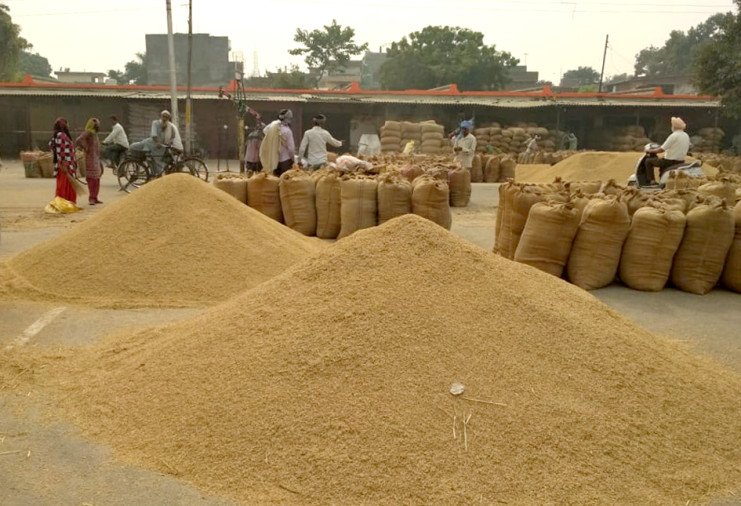
Self-Reliance via Changing Crop Cycle
In the last one-month, good news is coming for the farmers that mustard farmers are getting Rs. 7000 to Rs 8000 for every quintal of mustard in the market. Significantly, in previous years he used to get half of this price or even less. This year increased demand for mustard oil has led to increase in mustard prices and therefore improved income for mustard farmers. In 1950-51 rapeseed and mustard was sown on 2 million hectares of land. This area has reached only 6.2 million hectares in the last 70 years, while average yield per hectare has increased from 368 kg to 1500 kg. That is, both the area and yield of mustard have increased, but in the face of increasing demand for edible oils in the country, this growth is extremely insufficient. That is why even today we import more than 150 lakh tonnes of edible oils and our import bill of edible oils was 69000 crores in 2019-20.
Until some time ago, our country had become highly dependent on imports, for both edible oils and pulses. In recent years, both of these imports have come down and the country is moving towards self-reliance. However, we need to understand the reason for dependence on imports? And how the dependence on imports is now decreasing and how to reduce this further? If we look at pulses, our production of pulses has been limited to 120-140 lakh tonnes for many decades. In the last four-five years, the central government started declaring the minimum support price of pulses and due to the high prices of imported pulses, farmers were encouraged to grow more pulses and pulses production increased to 255.6 lakh tonnes by 2020-21. Still we are little short of our domestic demand for pulses, that is, 270 lakh tons.
Consumer demand for mustard oil has increased significantly compared to other edible oils, while its supply in the country is quite low. If seen in Punjab alone, it is estimated that on the basis of present per hectare yield, there is mustard cultivation on a total of 1.75 lakh hectares of land, then Punjab can meet its mustard demand. Even today, mustard is cultivated only on 32 thousand hectares of land. The main reason for the farmers' indifference to mustard is that they do not get the right price for mustard and hence they prefer to cultivate wheat in this season. Because they can sell the wheat to the government on the MSP. Significantly, this year, wheat gets them an average income of Rs 38000 per hectare, whereas, from mustard they got 63000 to 80000 rupees per hectare. India was not dependent on foreign countries for edible oils earlier. Conspiracies of international companies, neglect of governments, indiscriminate imports, lack of monitoring of farmers, etc. are many reasons, due to which our country has reached a state of huge dependence on imports.
However, the production of oilseeds in edible oils in recent years is expected to increase to more than 366 lakh tonnes in 2020-21. Despite this, we are hugely dependent on imported edible oils, although our import of edible oils has come down. Food grains production may surpass 305 million tonnes in 2020-21, which is 2.7 percent more than last year. Even oilseeds production has also increased by 10 percent. The dependence of foreign countries in edible oils is not a good sign for our country. On the one hand we see that the production of food grains, wheat and rice in the country is much more than the requirement, due to which our food grains stocks are overflowing. The shortage of edible oils somewhere raises questions on our food production management. Agricultural experts believe that we can easily change the situation through changes in crop cycle and selection of crops. This may make India self-reliant in edible oils etc., which will not only save valuable foreign exchange, the income of farmers will also increase.
The government has banned its palm oil import from Malaysia in the last two years. At the same time, the import duty on palm oil has also been increased. Along with these incentives, there are many other measures by which we can make the country self-reliant in edible oils by encouraging the production of oilseeds.
If it is made compulsory for oilseed importers to register their deals with a designated authority, then the government will come to know about details of oil imports, including the type of edible oil, its origin, price and arrival time. In this way, effective control can be exercised on import of edible oil.
Presently importers are given credit of 90 to 150 days by banks. Edible oil reaches India in 10 to 20 days, but in the remaining days, the importers indulge in speculations. This makes the oil expensive for the consumer, but farmers do not get any benefit of increase in price. If period of this credit is limited for 30-40 days, then the hoarding and speculation of oil may be curbed.


